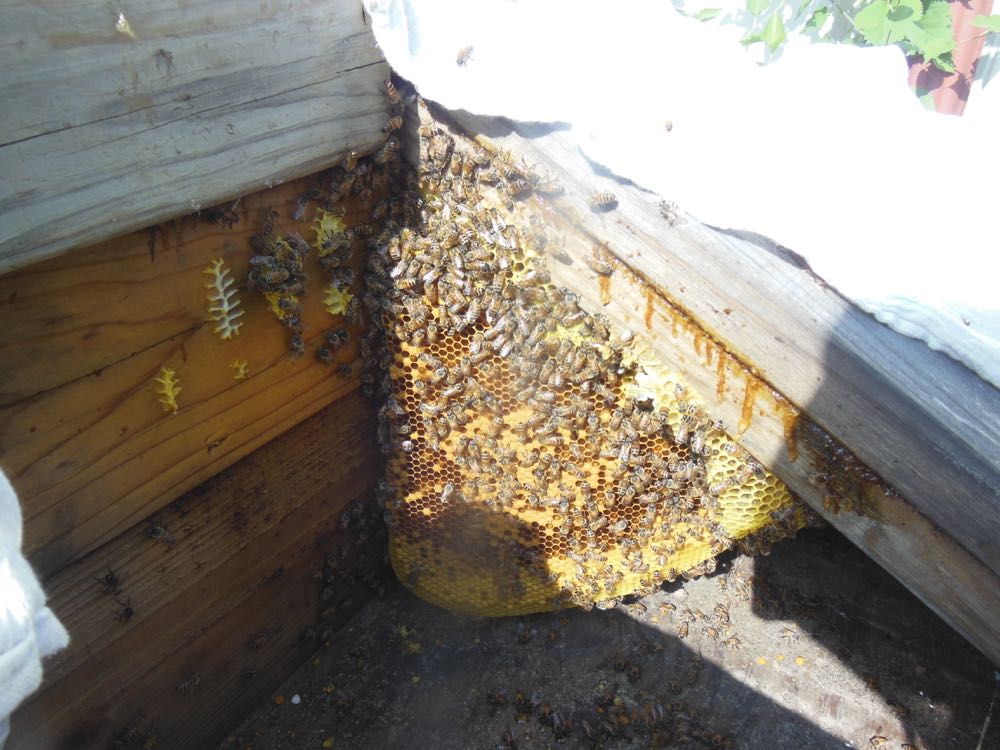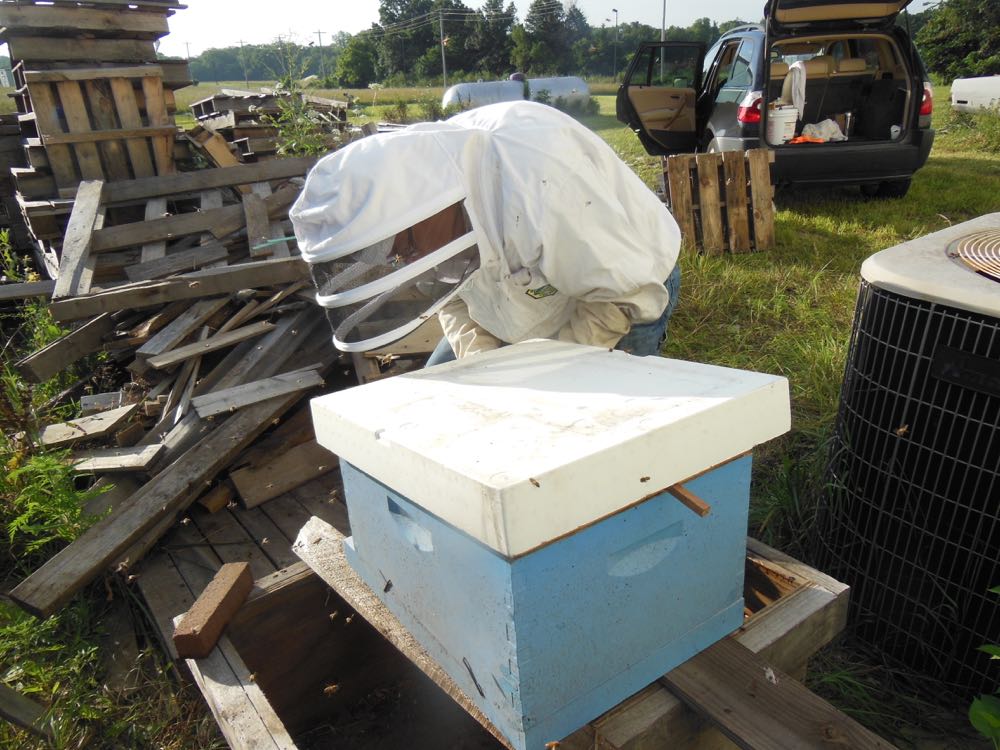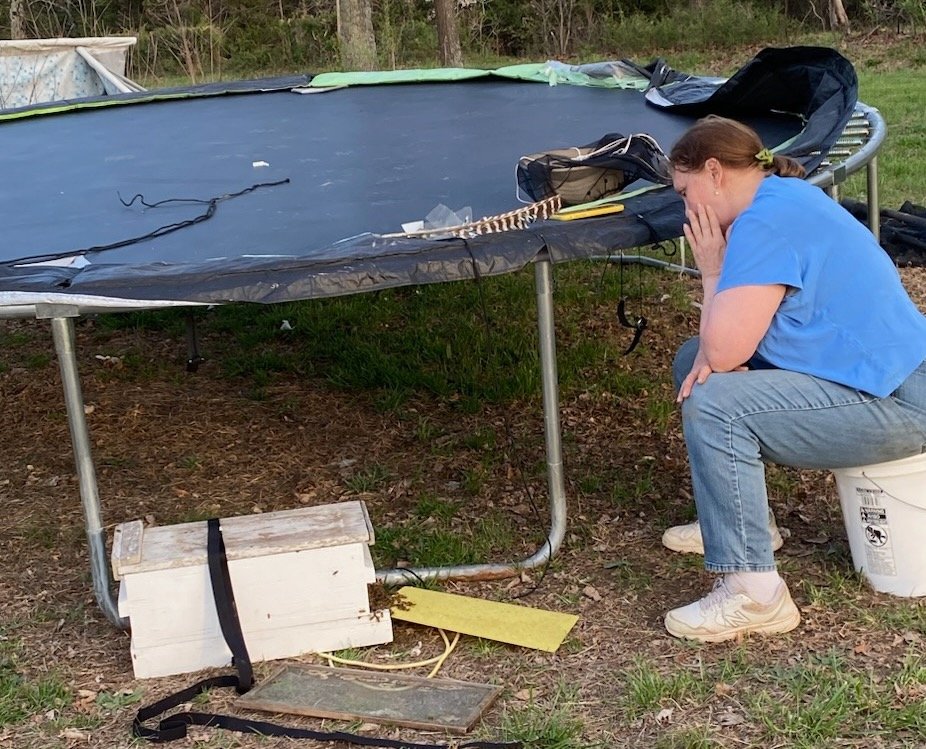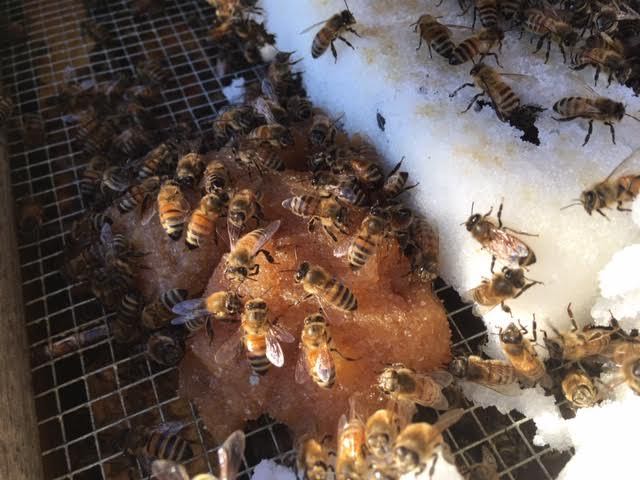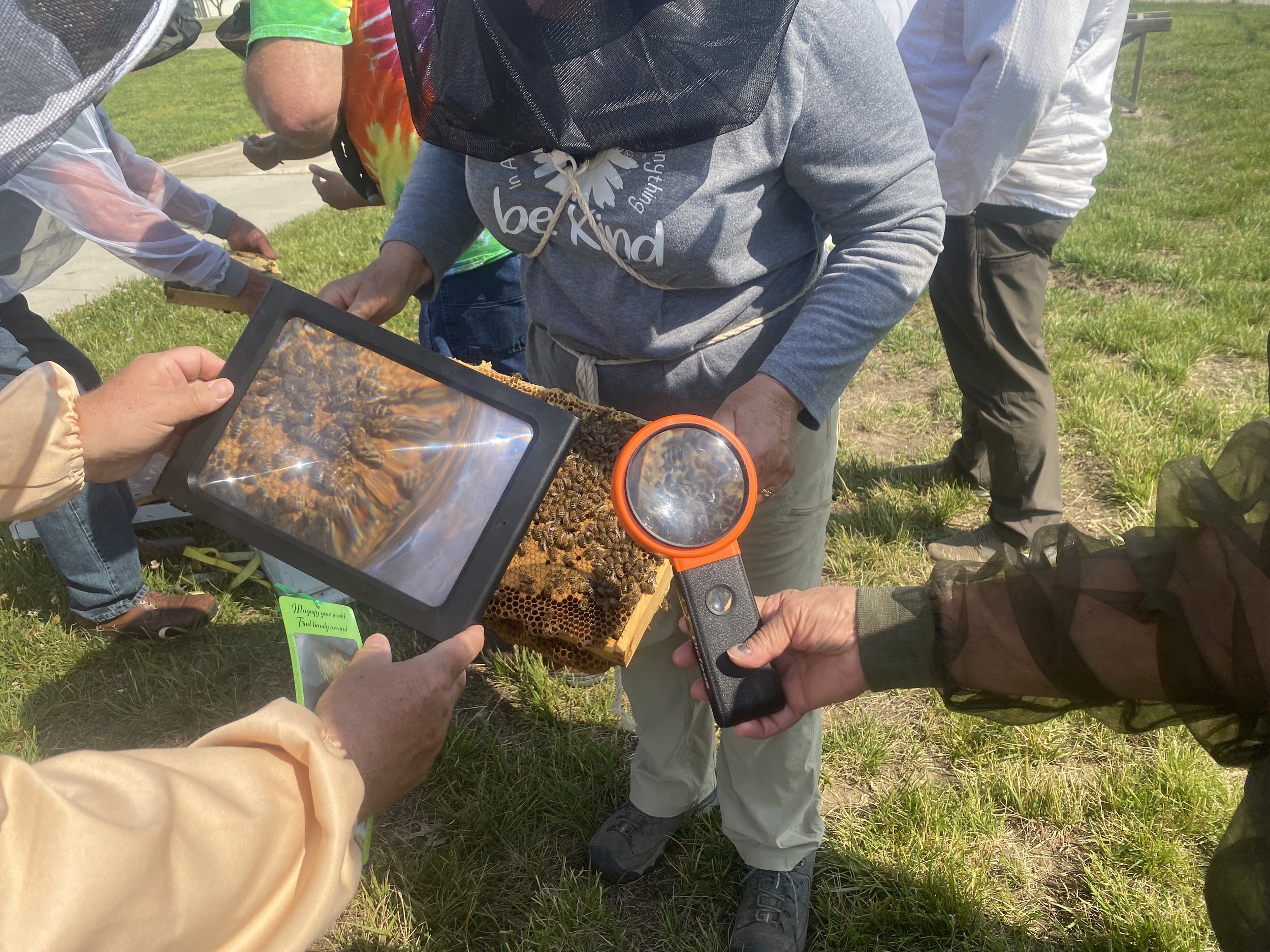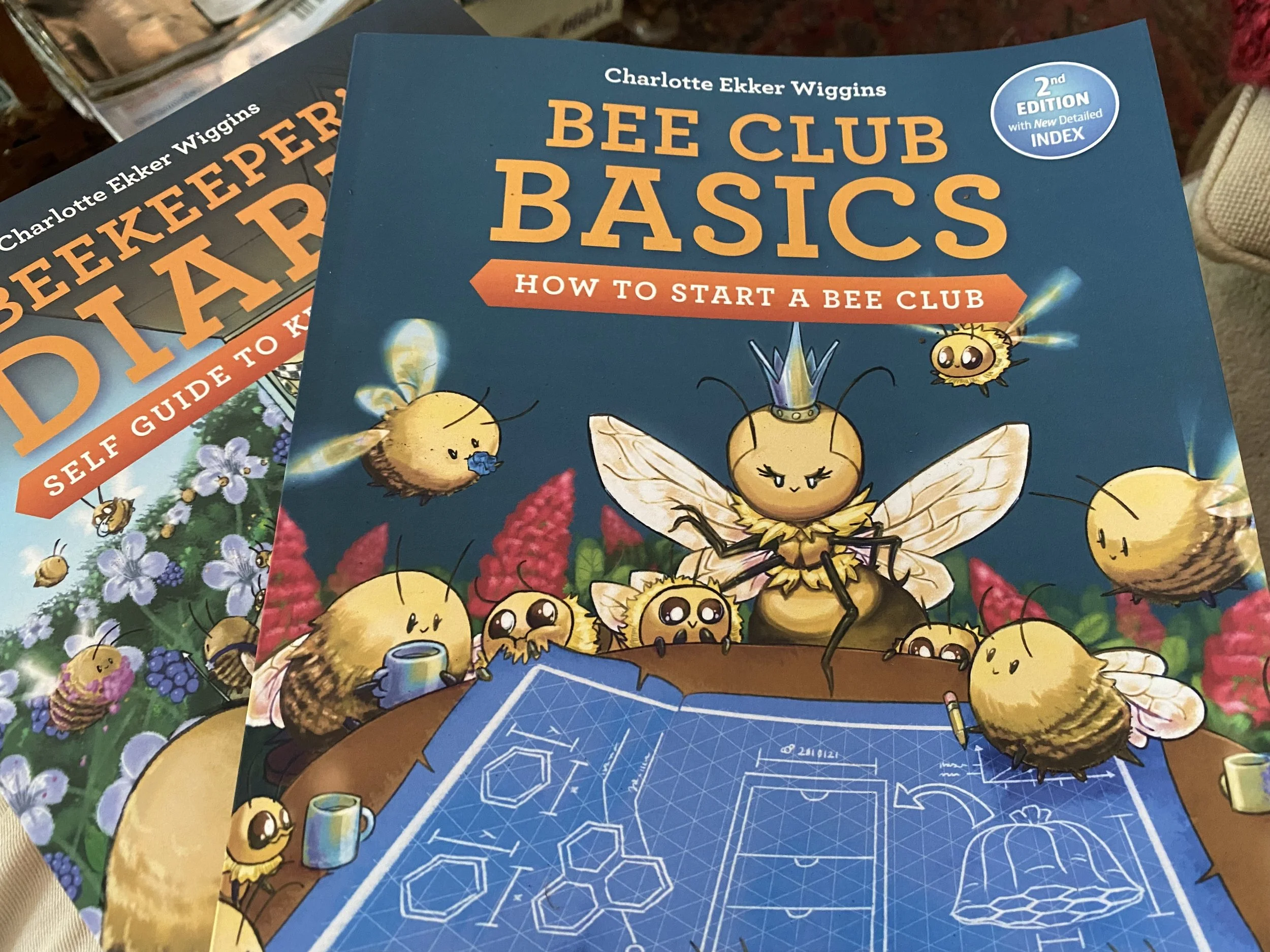Honey Bees in Wood Pile
/This is the wood pile where the caller said he had seen bees flying.
Honey Bees in Wood Pile
It's cold and possibly snowing again so here is one of the bee rescues David Draker and I completed a couple of years ago. The caller worked at a St. James Industrial Park business and noticed bees flying around one of their scrap wood piles, telling us a swarm had moved in.
When we arrived, it looked relatively quiet but then we were also there early morning, before the sun was up for very long, and before anything had warmed up, including us.
As we checked out the wood pile, some little faces popped up.
Honey bees appear in between wood pieces in the scrap wood pile as the sun hits them.
And then a few more. On closer inspection, we found the honey bees had not just moved in, they had been busy for awhile.
Beautiful yellow comb had been built on the wooden pieces piled into the wood pile.
Basically we were looking at a makeshift top bar hive where the top bars were 1x4 inches wide.
Time to suit up!
The president of the company where we were removing the bees suits up to lend a hand.
Luckily this wax comb was hanging down nicely, one piece of comb per wood slat, so it was relatively easy to carefully remove. I draped the kitchen towels over the remaining bees and comb while we carefully removed each wood slat at a time. Much better than using smoke, especially when the honey bees are as calm as these were.
Honey bees built their wax comb on the bottom of the wood in the pile.
Here's another piece of comb hanging from the last piece of wood we removed from the wood pile.
The piece of comb gets fitted into an empty frame and secured with rubber bands. I settled the wax comb into the frames when I wasn't taking photos, in case you were wondering. :)
A makeshift work station nearby is used to cut comb into frames and held with rubber bands.
Once all of the wax comb was removed, and the queen caged, we brought in a hive into the wood pile to leave for a couple of days so the bees would settle in before moving.
David sets an empty hive with a queen in a clip inside to attract bees to the new home.
After a few minutes, bees start going into the hive after the queen's welcoming pheromone.
In the video you will see the bees moving into the hive all by themselves. They are following the queen pheromone into their new home.
We left the hive in place for a couple of days, then went back after sunset to pick it up. By going after sunset, most of the foragers were back so we had most of the colony.
We settled them in David's apiary.
The new colony settled in David's apiary on concrete blocks for a base.
David pulls out the rubber-banded frames to see if the bees are building wax to attach comb.
This turned out to be much more than a swarm, it was a nicely-established, and large colony that nicely made the move.
Charlotte






